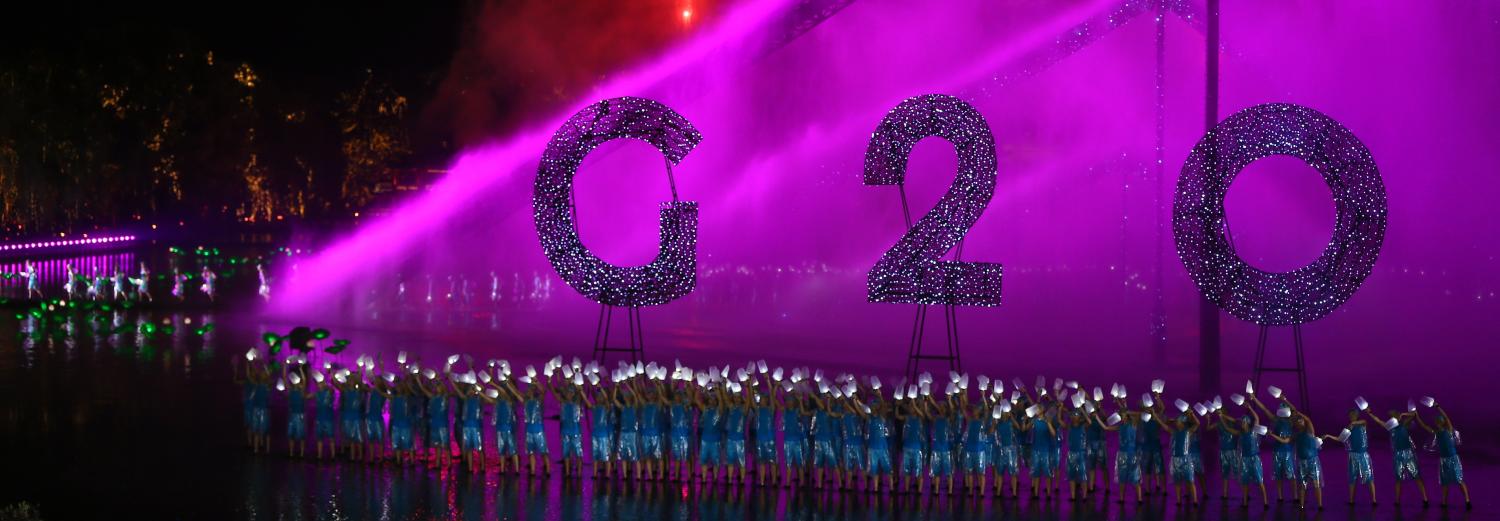Today marks the drawing down of the G20 Studies Centre at the Lowy Institute. The Centre was established to provide high quality public analysis of international economic governance. The government supported this work over the most intense period of the G20 for Australia, in the lead-up and the aftermath of the Brisbane Summit. The conclusion of the Centre’s work was marked with a speech today by the Treasurer Scott Morrison, and next week, an address by the head of the Department of Prime Minister and Cabinet, Dr Martin Parkinson.
We established the G20 Studies Centre because international economic governance is profoundly important to Australia. Membership of the G20 enables us to further our national interests, not at the expense of other members, but by contributing to global welfare. We can play a significant role in contributing to the design of the rules of the international economic game; and advocating an open, transparent, rules-based international economic order that safeguards our economy.
Australia’s membership of the world’s most important economic forum, the G20, has given Australia a new prominence in global affairs and new opportunities to realise not only our own prosperity and security, but also to justify our place at the table by making a positive and long-lasting contribution to the global governance agenda. For Australia to continue to play a leading role in international economic governance, we need to have a discussion that reaches beyond policy makers.
This is the kind of work the Institute was made for – to create a national conversation about these issues, and to produce high quality and balanced analysis. [fold]
Throughout our history, the Institute has taken a heterodox approach to the world. We are host to the widest range of opinions, but the advocate of none. This approach has been evident in the work of the Centre. Our scholars have deepened the discussion of the G20, each adding their own voice to the debate. My thanks go to Mark Thirlwell, Mike Callaghan, Hugh Jorgensen, Daniela Strube, Leon Berkelmans, Tristram Sainsbury and Hannah Wurf.
Other Institute colleagues have contributed to the work of the Centre. Having foreign policy and security experts working alongside economists has produced a rich body of work.
The output of the Centre has been prodigious. Its experts have been quoted in the New York Times, Wall Street Journal, Financial Times, The Economist, Bloomberg, Reuters, BBC as well as in all the major Australian outlets. Experts from the Centre have published hundreds of Interpreter posts, dozens of op-eds, two dozen G20 Monitors, eight Analysis papers and a book.
The Centre has hosted international fellows including David Dollar of the Brookings Institution and Yu Ye from the Shanghai Institute for International Studies.
Representatives from the Centre have attended the last four G20 leaders’ summits in St Petersburg, Brisbane, Antalya, and Hangzhou and provided expert analysis to the Australian and international media.
Although the G20 Studies Centre is coming to its end, the Lowy Institute will not be vacating the field of international economic governance. There are not many sources of international macroeconomic analysis outside of Canberra, and we plan to stay in the game.
And why wouldn’t we? The global economy is vulnerable. Populism and nativism are on the rise around the world. Risks loom, not least that of a Trump presidency. If the Institute is to inform the Australian debate about the world and influence our international policy, then international economics must continue to be a central theme of our work.
Photo: Getty Images/VCG
